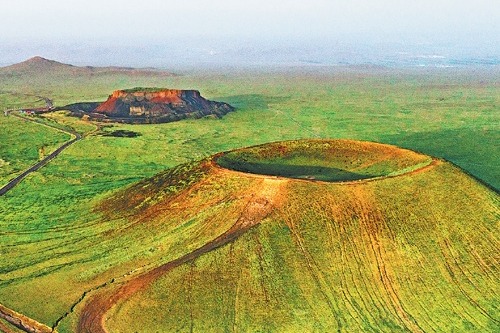Global warming blamed for heat waves

PARIS — The punishing heat experienced around the Mediterranean in July would have been "virtually impossible" in a world without global warming, climate scientists said, as scorching heat claimed more than 20 lives in a single day in Morocco, fanned wildfires in Greece and the Balkans, and strained athletes competing across France in the Summer Olympic Games.
A deadly heat wave brought temperatures well above 40 C to southern Europe and North Africa, where such extreme summer spells are becoming more frequent.
World Weather Attribution, or WWA, a network of scientists who have pioneered peer-reviewed methods for assessing the possible role of climate change in specific extreme events, said this case was clear.
"The extreme temperatures reached in July would have been virtually impossible if humans had not warmed the planet by burning fossil fuels," according to the WWA report by five researchers.
The analysis looked at the average July temperature and focused on a region that included Morocco, Portugal, Spain, France, Italy and Greece.
Scientists used this and other climate data to assess how the heat in July compared to similar periods in a world before humanity began rapidly burning oil, coal and gas.
They concluded the heat recorded in Europe was up to 3.3 C hotter because of climate change.
Battling wildfires
Fierce wildfires, propelled by strong winds, ravaged areas of Greece and the Balkans on Tuesday, destroying forests and homes and forcing the evacuation of an Albanian resort town.
In North Macedonia, a wildfire close to the Greek border destroyed five homes and necessitated evacuations, while firefighters struggled to contain the rapidly spreading flames, local officials said.
An official from North Macedonia's crisis management department, Goran Stojanovski, described the dire situation to Reuters, saying: "We have many fires. Thousands of hectares have caught fire. Half the country is in flames."
Beyond the Mediterranean, intense heat reached Paris this week where athletes competing in the Olympic Games struggled as temperatures hit the mid-30s this week.
"Extremely hot July months are no longer rare events," said Friederike Otto, a climate scientist at Imperial College London, a co-author of the WWA study.
"In today's climate, ... Julys with extreme heat can be expected about once a decade," she said.
Scientists have long established that climate change is driving extreme weather and making heat waves longer, hotter and more frequent.
This latest episode came in a month when global temperatures soared to their highest levels on record, with the four hottest days ever observed by scientists etched into the history books in July.
Jonathan Powell in London contributed to this story.
Agencies via Xinhua

Today's Top News
- Rainstorm in Beijing leaves 44 dead, 9 missing by Thursday noon
- Xi's speech at ecological, environmental protection conference to be published
- Xi's book on governance hailed for insights into 'China miracle'
- European destinations swamped by tourists
- Economy expected to maintain steady pace
- Stable, healthy Sino-US ties benefit all






























